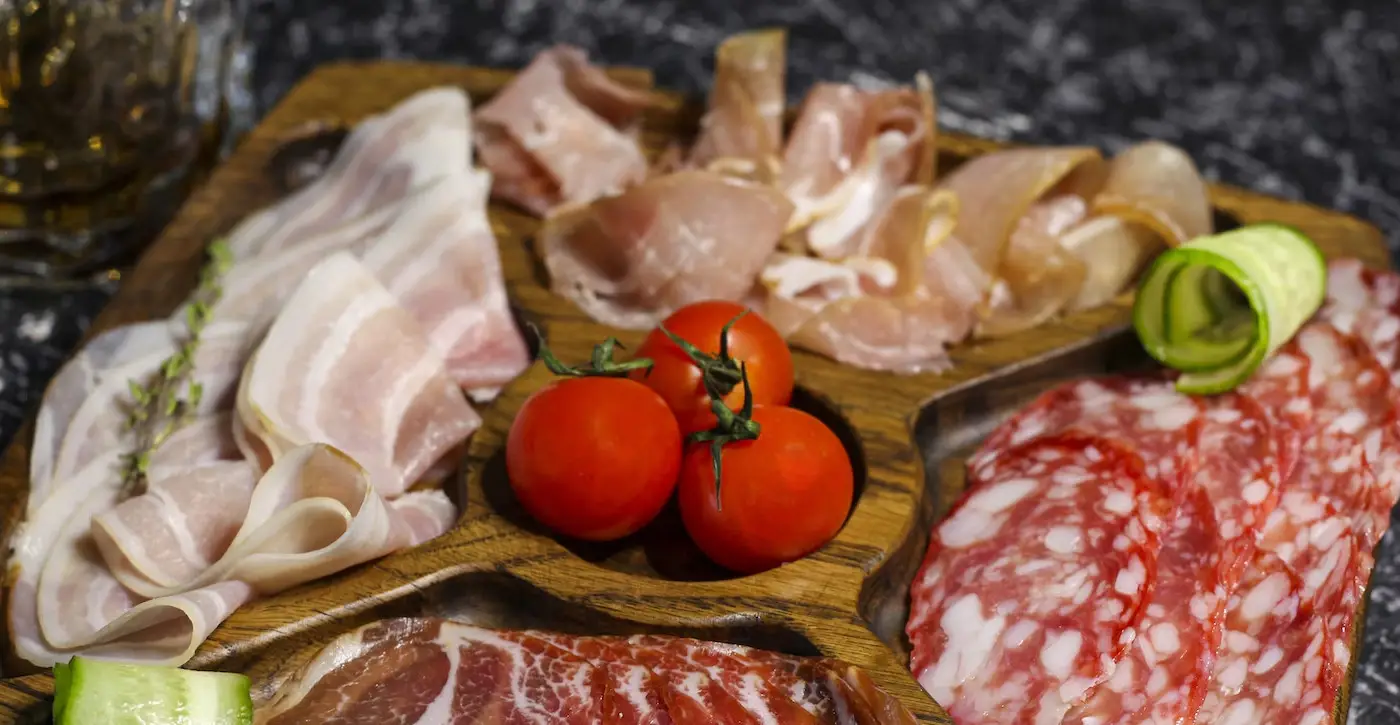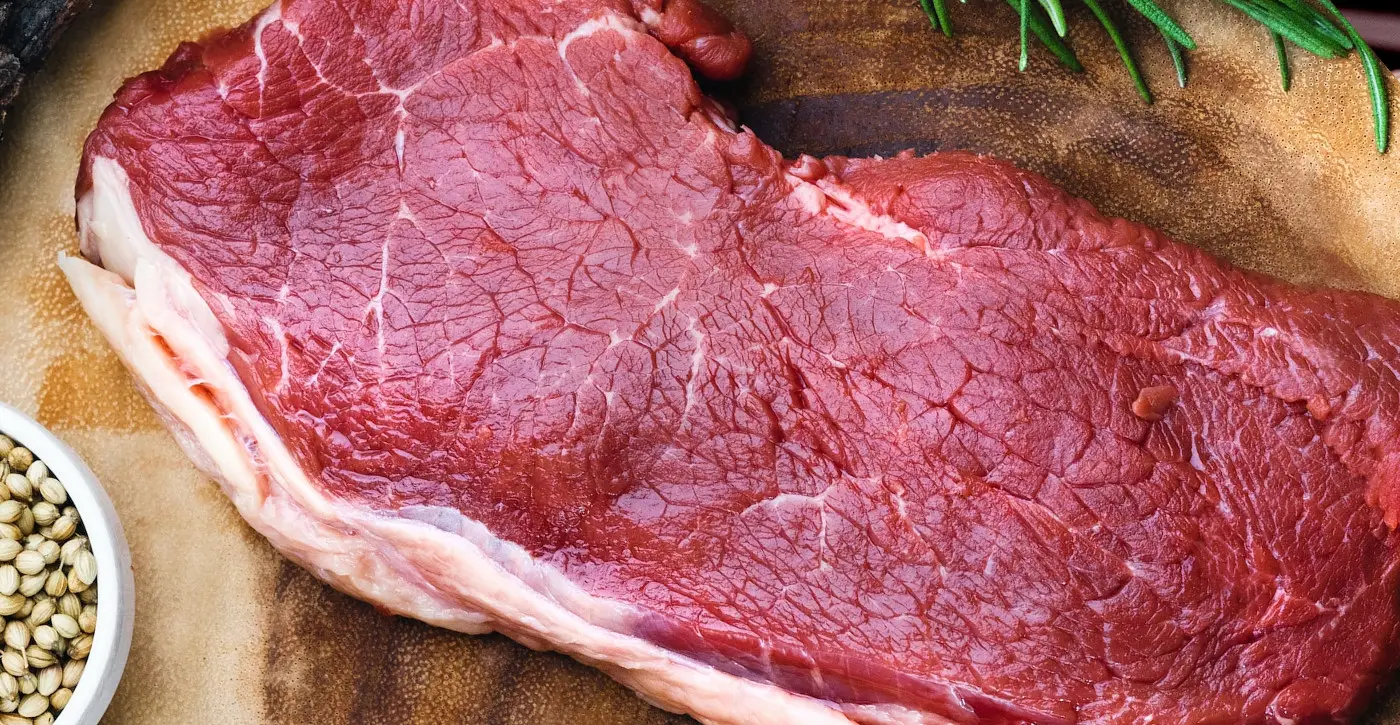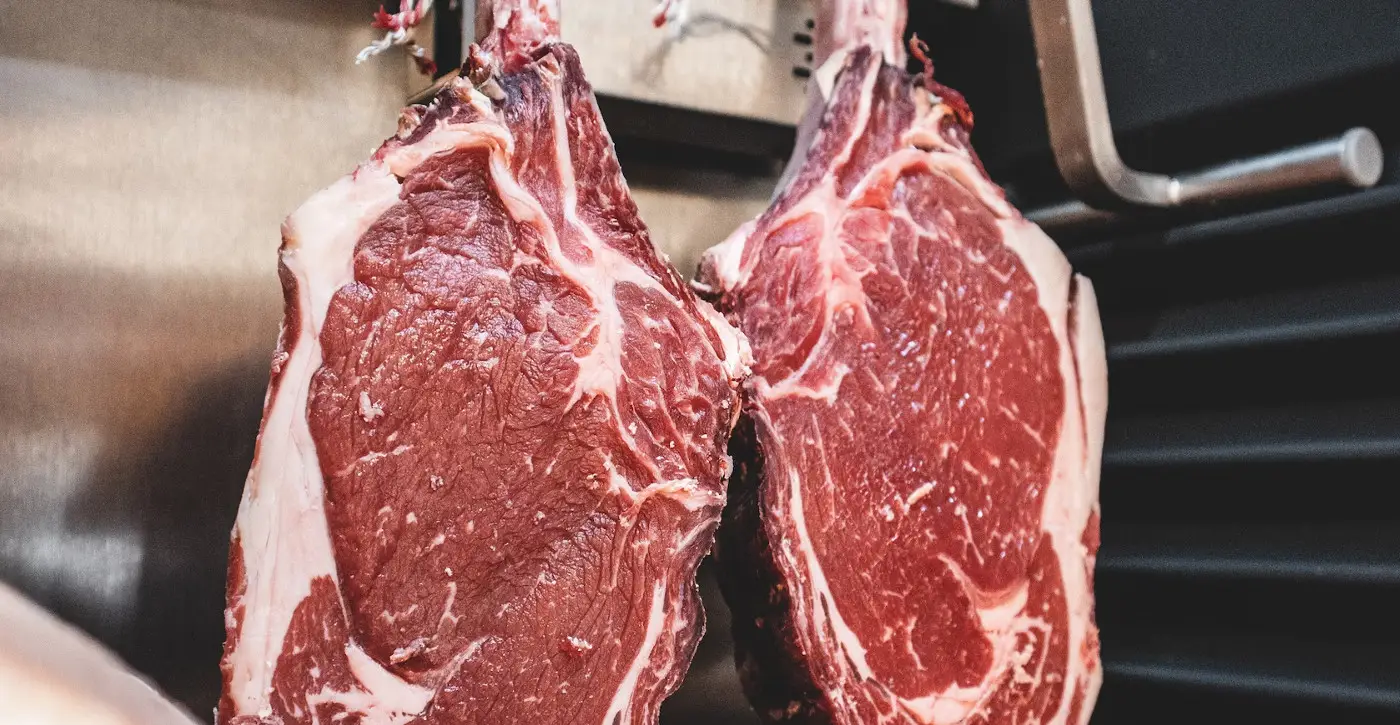Ham, Boneless Lysine and Arginine Info Sheet
Overview
Ham, boneless is a type of cured pork that is made from the hind leg of the pig.It is usually smoked, salted, or seasoned, and then cooked or sliced.
Ham, boneless is a good source of protein, thiamin, vitamin B12, and zinc.
It also contains a lot of fat, sodium, and nitrates, which can have negative effects on health.
It can be eaten cold or hot, as a main dish or a sandwich ingredient.
| Name | Lysine (mg/100g) | Arginine (mg/100g) | Ratio |
|---|---|---|---|
| Ham, Boneless | 1486.78mg | 1138.77mg | 1.306 |
Ham, Boneless contains 1486.78mg of Lysine and 1138.77mg of Arginine per 100g of product.
This means Ham, Boneless has a high Lysine-Arginine ratio of 1.306.
Because Ham, Boneless contains slightly more lysine than arginine, increasing its consumption may benefit people who suffer from herpes, as it may boost the immune system.
Lysine Considerations
Ham, boneless is a high source of lysine, an essential amino acid that is important for protein synthesis, collagen formation, and calcium absorption.
Lysine has the potential to prevent or treat cold sores, which are blisters caused by the HSV-1 virus, also known as herpes.
Lysine operates by working against the proliferation of HSV-1, which relies on another amino acid, arginine, to reproduce and infect cells.
Lysine can only be acquired through our diet, and is present in a variety of high-protein foods such as eggs, dairy products, fish, meat and poultry.
Arginine Considerations
Ham, boneless is a high source of arginine, a semi-essential amino acid that is involved in nitric oxide production, wound healing, and immune function.
Arginine can contribute to cold sore outbreaks, which are blisters caused by the HSV-1 virus, also known as herpes.
Arginine aids in the growth of HSV-1, which needs this particular amino acid to multiply and infect cells.
Arginine can be obtained through our diet, and is found in multiple high-protein foods such as nuts, seeds, and chocolate.
Regrettably, the herpes virus is known to "feed" on arginine, and a diet a decent source of arginine compared to lysine may increase the frequency and severity of cold sores and herpes outbreaks.
Lysine-Arginine Ratio
Ham, boneless has a balanced lysine-arginine ratio, which means it can provide both amino acids in adequate amounts for various physiological processes.
The herpes simplex virus, which causes oral and genital herpes, needs arginine to multiply and infect cells.
Lysine, on the other hand, can interfere with the absorption of arginine in the intestine, and thus limit the availability of arginine for the virus.
By eating a diet higher in lysine than arginine, one may be able to prevent or treat herpes symptoms.
Foods that have a high lysine-arginine ratio include milk and cheese, fish, poultry, fruits, and vegetables.
These foods can supply the body with sufficient lysine to compete with arginine and inhibit the virus from replicating and causing flare-ups.
Dietary Considerations
Red meats are abundant in protein and lysine, but they also contain more fat and cholesterol than poultry or fish.
Red meats can help prevent or treat herpes outbreaks, as lysine can block the activity of arginine.
Red meats also contain zinc, iron, and vitamin B12, which are essential for immune function and nerve health.
Beef and pork are some of the red meats that have more lysine than arginine, with almost as much as poultry.
Despite this, red meats should be consumed in moderation, as they can increase the risk of cardiovascular diseases and some cancers.

For example:
A well-balanced and healthy diet that strengthens your immune system and lowers inflammation is important.
This means you should eat a lot of fruits, vegetables, whole grains, lean protein, and good fats, and avoid processed foods, added sugars, alcohol, and caffeine.
Drinking enough water to keep yourself hydrated and remove toxins from your body.
Water can also help prevent dryness and irritation of the skin and mucous membranes, which can result in fewer outbreaks.
Consider taking l-lysine supplements, which can help prevent herpes outbreaks and stop a cold sore before it emerges by limiting the availability of arginine for the virus, which it requires to produce a cold sore.
Eating foods that can soothe your symptoms and speed up your healing process, such as honey, yogurt, aloe vera, and chamomile.
These foods have anti-inflammatory, antiviral, and antibacterial properties that can reduce pain, swelling, and itching, and promote tissue repair.
Check more food information






